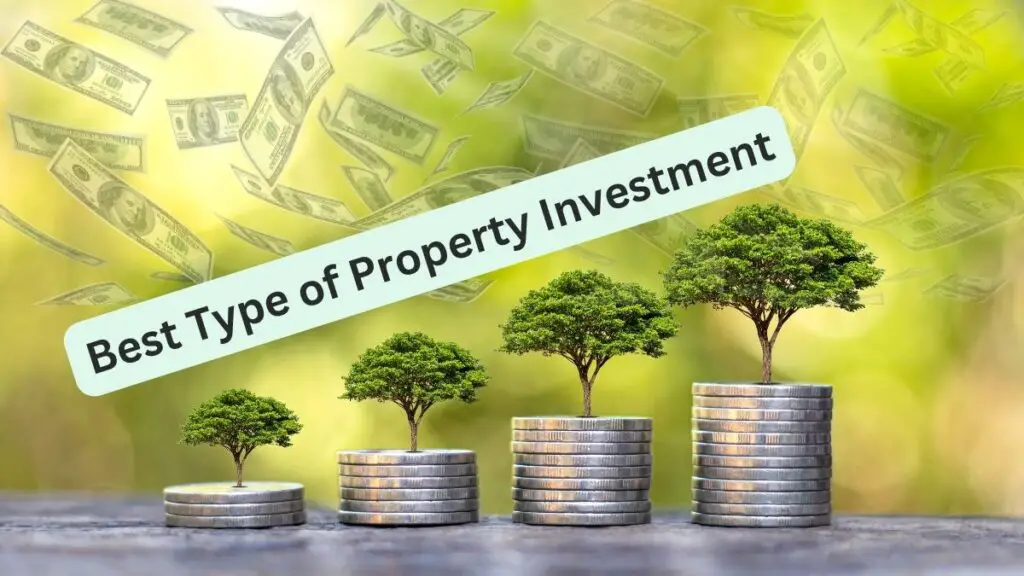Investing in real estate offers numerous opportunities for wealth accumulation and portfolio diversification. However, navigating the diverse landscape of property investments requires careful consideration and strategic planning. In this guide, we’ll delve into the various types of property investments and determine the best approach to maximize returns while minimizing risks.

Introduction to Property Investment
Understanding Different Types of Property Investments
Residential Properties
Residential properties include single-family homes, condominiums, townhouses, and apartment buildings. They are primarily used for residential purposes and can generate rental income from tenants.
Commercial Properties
Commercial properties encompass office buildings, retail spaces, warehouses, and industrial complexes. Investing in commercial real estate offers higher rental yields but often requires larger initial investments.
Vacation Rentals
Vacation rentals, such as Airbnb properties, cater to short-term stays by tourists and travelers. They can yield substantial returns, especially in popular tourist destinations, but require diligent management and maintenance.
Real Estate Investment Trusts (REITs)
Real Estate Investment Trusts (REITs) enable individuals to invest in a diverse range of real estate assets without the need to own properties directly. They offer liquidity and passive income through dividends.
Points to Ponder Before Selecting a Property Investment
Before diving into properties investment, it’s crucial to evaluate various factors that can impact your investment’s success.
Market Trends and Location
The location of the property plays a significant role in its potential for appreciation and rental demand. Analyze market trends, economic indicators, and demographic shifts to identify promising locations.
Initial Investment Cost
Consider your budget and financing options when assessing different properties investment opportunities. Factor in upfront costs, such as down payments, closing costs, and renovation expenses.
Potential for Appreciation
Look for properties in areas with strong growth prospects and development plans. Properties located in high-demand neighborhoods or emerging markets are more likely to appreciate in value over time.
Rental Yield
Maintenance and Management

Assess the ongoing maintenance requirements and management responsibilities associated with each property type. Factor in property taxes, insurance, repairs, and tenant turnover when estimating expenses.
Comparing the Pros and Cons of Each Property Investment Type
Each type of properties investment offers unique advantages and challenges that investors must weigh carefully.
- Residential properties provide stability and long-term appreciation potential but may require hands-on management.
- Commercial properties offer higher rental yields and longer lease terms but can be more susceptible to economic downturns.
- Vacation rentals provide flexibility and higher rental income during peak seasons but require active marketing and guest management.
- REITs offer diversification and passive income but are subject to market fluctuations and management fees.
Assessing Risk Levels in Property Investments
Property investments carry inherent risks, including market volatility, economic downturns, and unforeseen expenses. It’s essential to assess and mitigate these risks through diversification, thorough due diligence, and conservative financial planning.
Best Practices for Successful Property Investment
Successful property investment requires a combination of strategic planning and prudent decision-making.
Diversification
Diversify your investments by spreading them across various property types, locations, and asset classes to reduce risk and maximize returns.
Due Diligence
Conduct thorough research and analysis before committing to any investment. Evaluate property fundamentals, market conditions, and potential risks to make informed decisions.
Long-Term Vision
Take a long-term approach and avoid the urge to pursue immediate profits. Focus on acquiring quality assets with the potential for sustainable growth and income generation.
Professional Advice
Seek guidance from experienced real estate professionals, financial advisors, and legal experts to navigate complex investment decisions and mitigate risks.
Conclusion
investment offers a wealth of opportunities for investors seeking to build long-term financial security. By understanding the various types of property investments, assessing risk factors, and implementing best practices, investors can position themselves for success in the dynamic real estate market.
Unique FAQs
- What is the minimum investment required for property investment?
- The minimum investment for property varies depending on the type of property and its location. While some properties may require substantial upfront costs, others may offer entry-level investment opportunities.
- How do I finance a property investment?
- Financing options for property investments include traditional mortgages, commercial loans, private financing, and partnerships. Consider your financial situation, risk tolerance, and investment goals when choosing the appropriate financing strategy.
- What are the tax implications of property investment?
- Property investors may be subject to various taxes, including property taxes, capital gains tax, and rental income tax. Consult with a tax advisor to understand the tax implications of your investment and optimize your tax strategy.
- How do I find reliable property management services?
- Research property management companies thoroughly, read reviews, and ask for referrals from other investors. Interview multiple candidates to assess their experience, services offered, and fees before making a decision.
- What are the exit strategies for property investments?
- Exit strategies for property investments include selling the property, refinancing, transferring ownership, or converting it into a different asset class. Evaluate market conditions, investment performance, and your financial objectives when determining the most appropriate exit strategy.
